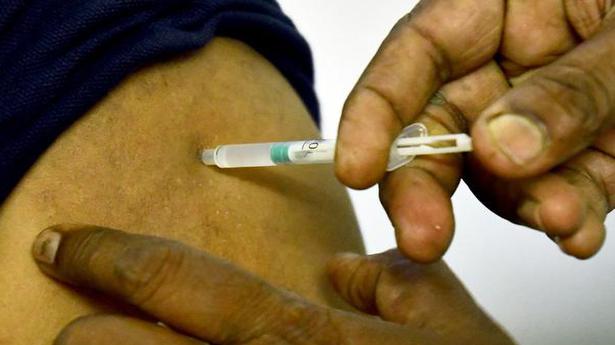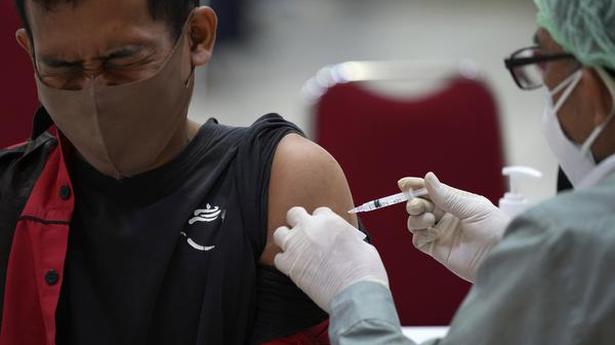| The Delhi High Court, while granting bail to Devangana Kalita, Natasha Narwal and Asif Iqbal Tanha on Tuesday, gave the Delhi Police a dressing-down for "casually" invoking provisions of anti-terror laws against the three students who had protested against the enactment of the Citizenship (Amendment) Act (CAA). Jawaharlal Nehru University students Kalita and Narwal, along with Jamia Millia Islamia student Tanha, were arrested in connection with the northeast Delhi riots last year. "We are constrained to say, that it appears that in its anxiety to suppress dissent and in the morbid fear that matters may get out of hand, the State has blurred the line between the constitutionally guaranteed 'right to protest' and 'terrorist activity'," a Bench of Justice Siddharth Mridul and Justice Anup Jairam Bhambhani said. "If such blurring gains traction, democracy would be in peril," it said. The High Court ruled that no offence under the anti-terror law — Unlawful Activities (Prevention) Act (UAPA) — is made out against any of the three students. "The phrase 'terrorist act' cannot be permitted to be applied in a cavalier manner to criminal acts or omissions that fall squarely within the definition of conventional offences as defined inter alia under the IPC [Indian Penal Code]," the court said. "Having given our anxious consideration to this aspect of 'likelihood' of threat and terror, we are of the view that the foundations of our nation stand on surer footing than to be likely shaken by a protest, however vicious, organised by a tribe of college students or other persons, operating as a coordination committee from the confines of a University situated in the heart of Delhi," the High Court observed. Noting that protests against governmental and parliamentary actions were legitimate, the Bench said though such protests were expected to be peaceful and non-violent, it was not uncommon for protesters to push the limits permissible in law. Citing the case of Kalita, the High Court observed, "Even if we assume for the sake of argument, without expressing any view thereon, that in the present case inflammatory speeches, 'chakka jams', instigation of women protesters and other actions, to which the appellant (Ms. Kalita) is alleged to have been party, crossed the line of peaceful protests permissible under our Constitutional guarantee, that however would yet not amount to commission of a 'terrorist act' or a 'conspiracy' or an 'act preparatory' to the commission of a terrorist act as understood under the UAPA".  First death confirmed due to anaphylaxis following Covid-19 vaccination A government panel studying Covid-19 vaccine side effects has confirmed the first death, due to anaphylaxis, following Covid-19 vaccination here on Tuesday. According to a report submitted by the national Adverse Events Following Immunisation (AEFI) Committee, a 68-year-old man died due to anaphylaxis (severe allergic reaction) after being vaccinated on March 8. The death is reported as "vaccine product related reaction" in the report.  The causality assessment of 31 reported adverse events following immunisation (AEFI) cases was carried out by the panel. N.K. Arora, advisor, National AEFI committee told The Hindu, "It is the first death linked to Covid-19 vaccination due to anaphylaxis. But compared to the overall numbers, only a small number had a severe reaction. Those getting their vaccination need to wait for 30 minutes at the inoculation centre after vaccination as most of the anaphylactic reactions occur during this period and prompt treatment prevents deaths." Reacting to the report NITI Aayog, member, (Health), V.K. Paul said, "This incident should not create fear in the minds of people and there should be no apprehension about the safety of the vaccines approved for Indian population. Whenever decisions about public health are taken we discuss the benefits and risks involved and in this case the risk involved is miniscule as opposed to the gains."  Two doses of Covishield provide 92% protection against hospitalisation for those infected by delta variant A real-world study undertaken by Public Health England in 14,019 people infected with the delta variant (B.1.617.2) in England found that vaccination with two doses of the AstraZeneca and Pfizer vaccines offered high protection against hospitalisation. Of the 14,019 people infected with the delta variant, only 166 required hospitalisation. The study was undertaken between April 12 and June 4. In the case of AstraZeneca, whose vaccine is marketed in India under the name Covishield, effectiveness against hospitalisation after full vaccination was 92%, while it was 96% in the case of Pfizer. The results have been posted as a preprint. Preprints are yet to be peer-reviewed.  Public Health England had earlier found that despite modest reductions n effectiveness, vaccines remained potent against the delta variant. It found that in the case of the delta variant, full vaccination offered good protection against symptomatic disease. Vaccine effectiveness against symptomatic disease was 67% in the case of AstraZeneca and 88% with Pfizer. Effectiveness against hospitalisation was high even with one dose of AstraZeneca and Pfizer vaccine. In the case of delta variant, one dose of AstraZeneca vaccine offered 71% protection against hospitalisation, while two doses offered 92% protection. In the case of Pfizer vaccine, the protection against hospitalisation was 94% after one dose and 96% after two doses.  SC gives 2 weeks to IUML to respond to MHA affidavit on citizenship The Supreme Court on Tuesday gave the Indian Union Muslim League (IUML) two weeks to respond to an affidavit by the Ministry of Home Affairs (MHA) that its May 28 order, delegating power to the Collectors of 13 districts in five States to grant citizenship to non-Muslims from Pakistan, Afghanistan and Bangladesh, has "no relation whatsoever" with the controversial Citizenship (Amendment) Act (CAA) of 2019. Appearing before a Vacation Bench of Justices Hemant Gupta and V. Ramasubramanian, senior advocate Kapil Sibal and advocate Haris Beeran, for the IUML, sought time to file their rejoinder to the government's reply to their petition challenging the legality of the May order. Petitions, including that filed by the PFI (Popular Front of India) and a private individual, have drawn parallels between the CAA and the May 28 notification, which facilitates non-Muslims from the three countries residing in 13 districts of Gujarat, Rajasthan, Chhattisgarh, Haryana and Punjab to apply for citizenship. The IUML said the May 28 order was a deliberate ploy to implement the CAA's "malafide designs". In its response, the MHA said the May order "merely delegates the power of [granting citizenship by registration and naturalisation] to the local authorities in particular cases". "The Central Government used its authority under Section 16 of the Citizenship Act… It is merely a process of decentralisation of decision-making aimed at speedy disposal of the citizenship applications of such foreigners… It has no relation whatsoever to the CAA," the MHA affidavit said. No need for prior sanction to prosecute Anil Deshmukh, CBI tells Bombay High Court The CBI told the Bombay High Court that it did not need prior sanction to prosecute former Home Minister Anil Deshmukh. Deshmukh had moved the court to quash the FIR registered against him by the Central agency. He said the CBI needed sanction to prosecute him as he was a public servant. He also contended that the case against him was dubious. The affidavit filed by the CBI said, "The offence of an attempt to obtain undue advantage for improper and dishonest performance of their public duty is not covered under the purview of recommendation made or decision taken by such public servant in discharge of his official functions or duties." The FIR was registered against him after the court directed it to conduct a preliminary inquiry into charges of corruption. "The petition is an abuse of the legal process and hence should be dismissed," the agency said. On April 5, a division bench of Chief Justice Dipankar Datta and justice GS Kulkarni had directed the Director of the CBI to initiate the inquiry within 15 days into the allegations levelled by former Police Commissioner Param Bir Singh against Deshmukh, who had subsequently resigned from the State Cabinet. The matter will be heard next on June 18.  Local leaders condemn arrest of Kashmir trader for remarks at a meeting The Peoples Conference and CPI(M) on Tuesday sought the intervention of the J&K Lieutenant Governor and demanded the release of a Ganderbal resident, who remains under arrest since June 10 for his remarks that "he did not expect much from the non-local officers" during a public meeting, chaired by L-G's adviser Baseer Ahmad Khan. The police booked Sajad Ahmad Sofi, 50, a local trader from Ganderbal's Safapora area, under Section 153-A (promoting enmity) for his remarks made in front of Deputy Commissioner Krittika Jyotsna, an IAS officer. Jyotsna, an officer from Uttar Pradesh, was posted on deputation to J&K on February 8, 2021 along with her husband Rahul Pandey, also of the IAS, who works in the L-G's office. The police took suo motu cognisance of the remarks wherein Sofi said he had expectations from Khan "because he was a Kashmiri". "I can grab you (Mr. Khan) by the collar to seek answers. What expectations, however, can I have from the officers who are outsiders," Sofi allegedly said, during the 'public darbar' aimed at addressing public grievances instantly. Sofi's family alleged that he was jailed again despite being granted a bail on June 12 and booked under Sections 107 and 105 of the IPC. Seeking his preventive detention, the police told the court that Sofi indulged in "loose talk" and "hurt" the senior non-local bureaucrat. "There was reasonable apprehension that he will create a law and order situation," a senior police officer said. CPI(M) leader M.Y. Tarigami on Tuesday termed the arrest as "unwarranted, uncalled for and brazen violation of the fundamental rights of people". "He (Sofi) was a part of a delegation to demand a degree college in Safapora. If such incidents happen during the reach-out programme of the L-G administration, it can create a sense of fear. Such an attitude of the officer is highly authoritarian and detrimental. It only damages and dents the credibility of the institution the officer represents," Tarigami said. He said the police decision not to release him despite the interim bail "was a brazen misuse of power and authority". Peoples Conference (JKPC) spokesman Adnan Ashraf Mir said such an action reflected the state of affairs in J&K. "The action is a direct assault on democratic principles and goes on to relay the hopeless and scary picture. Slapping him with severe charges is a step towards demolishing the democratic institutions and stifling voices," he said.  Covid Watch: Numbers and Developments The number of reported coronavirus cases from India stood at 2,96,10,336 at the time of publishing this newsletter, with the death toll at 3,77,783.  Evening Wrap will return tomorrow. |
Post a Comment